BKT supercharges tractor tyre production in India
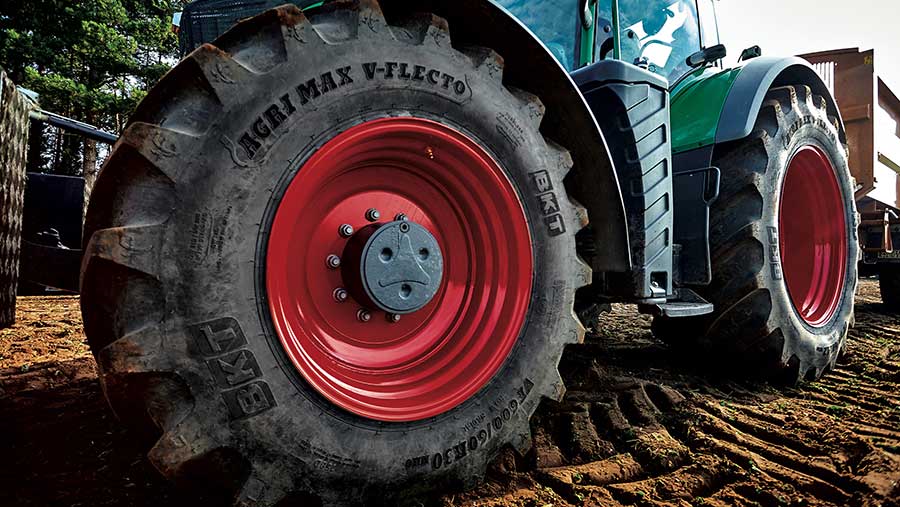 © BKT
© BKT Tyre maker BKT has announced a $500m (£415m) investment to expand one of its four Indian factories, as it bids to ramp up production to 600,000t/year and double its $1b turnover by 2026.
This, the company says, will give it the highest agricultural radial production capacity in the world and allow it to grow its off-highway market share, which currently stands at 6% globally, and 10% in Europe.
Part of the Bhuj development will include a purpose-built facility for track manufacturing following the launch of the company’s debut rubber belt, the 18in-wide BK T71, late last year.
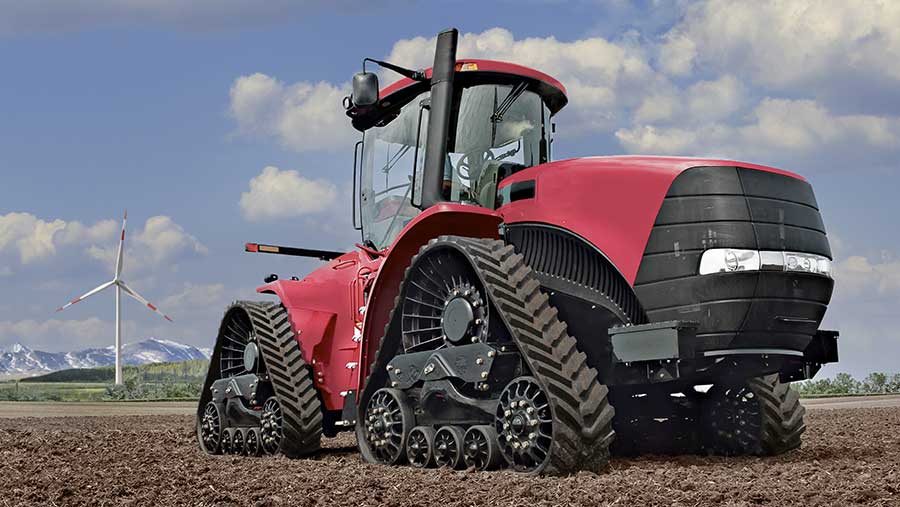
© BKT
Designed primarily for Case IH’s Steiger and Rowtrac machines, and the New Holland Smart Trax, it is available in various lengths from 6.7m to nearly 9m that put between 88 and 118 lugs on the ground.
And with more sizes set for launch imminently, BKT has now turned its attention to combine tracks, with a 24in-wide version set to be tested this year.
See also: High-flexion tractor tyres; how they work and what they cost
Radial rubbers
It also has a new range of tractor radials with lugs that are longer, to increase the contact area and minimise road noise, and set a lesser angle to reduce rolling resistance.
One notable feature of the Agrimax Factors is their use of polyester belts and plies, rather than the standard nylon, which has apparently improved lateral stability.
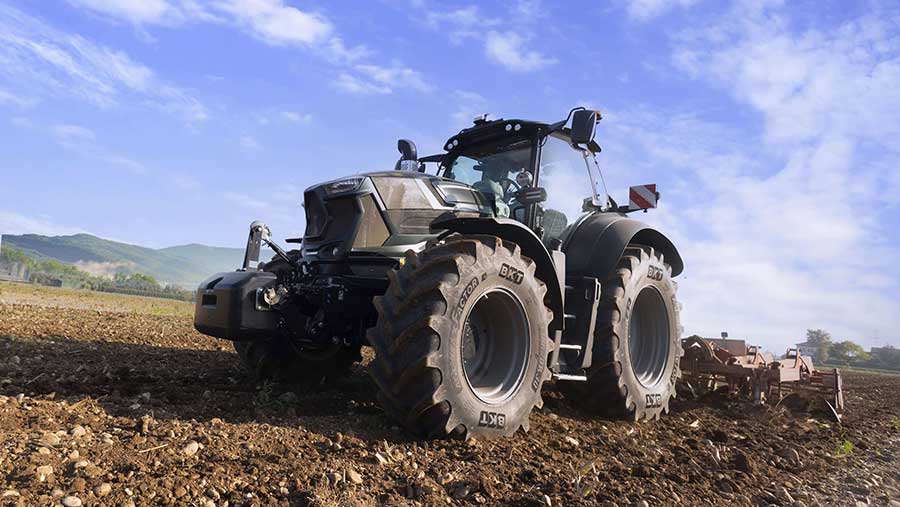
© BKT
They are available as 600/70 R30s and 710/70 R42s, but 12 additional sizes will soon be released on 24, 28, 34 and 38in rims.
The Agrimax Factors are also available “E-Ready”, making them suitable for electric vehicles.
Subtle differences in the make-up of these versions over a standard tyre include a more robust structure with reinforced belts and casings, plus different sidewalls and bead designs.
These alterations account for the added weight of the vehicle’s batteries, which BKT estimates can increase total load by as much as 30% compared with a standard combustion engine machine.
Changes to the bead also improve rim grip, which comes under greater strain because electric motors provide maximum torque all of the time – meaning drive uptake is faster, more intense, and more likely to cause wear.
And the company has also factored in the need to maximise efficiency, with rolling resistance – which can account for 20% of a vehicle’s energy consumption – reduced through the use of a different tread compound and pattern.
Other relatively new products include an expanded range of V-Flecto VF tractor tyres.
These have a flexible carcass to transport 40% more weight than a standard tyre of the same size and, like other very high flexion tyres, can be run at a lower pressure to increase the number of lugs in touch with terra firma.
The line-up now starts with the VF 480/60 R28 and runs through 30, 34, 38 and 42in rims to the VF 750/70 R44.
On the implement front, there’s a new Ridemax FL 615, available as a 800/65 R32 radial flotation for trailers, tankers and spreaders.
Factory expansion
The sprawling 258ha complex in Bhuj, north-west India, opened in 2012 and has undergone steady expansion since. It is now home to nearly 5,000 staff, six test tracks and churns out up to 436t of tyres a day.
It also has 5ha of covered storage – enough to hold 15 days’ worth of production, about 6,500t.
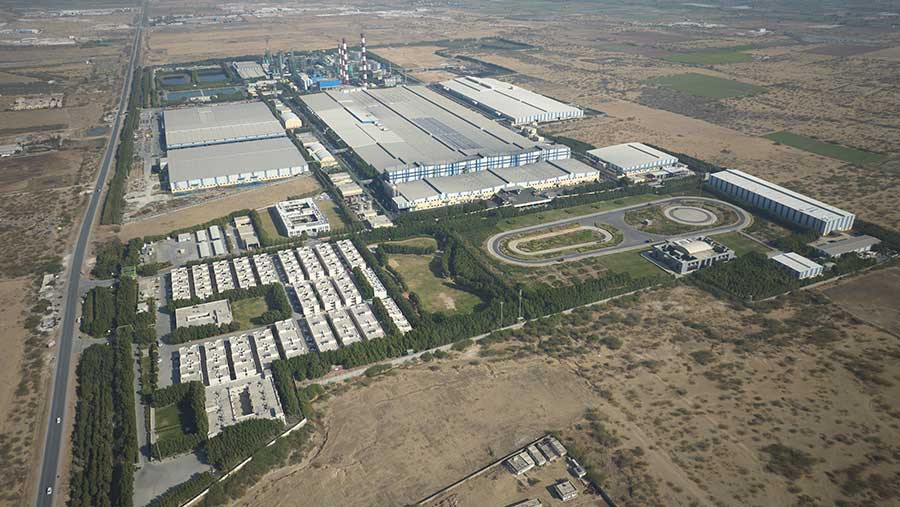
© BKT
BKT’s planned expansion will add a further 116ha to the premises when it is completed in 18 months.
However, this isn’t purely dedicated to tyres. For starters, the existing 40MW power plant will be increased to 100MW and make BKT entirely self-sufficient on energy.
And it will allow the company to supercharge its production of carbon black, an essential tyre ingredient it has made in-house since 2017 that reinforces the rubber compound to increase the strength of the carcass and tread.
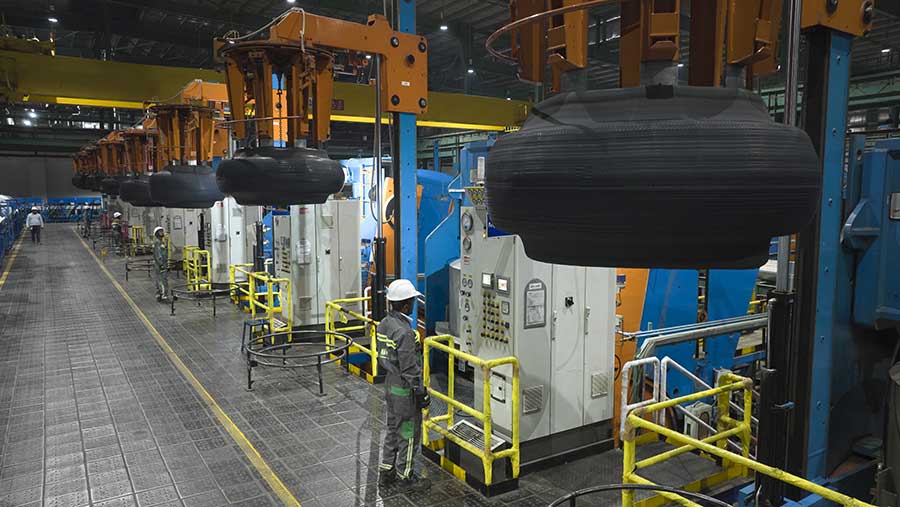
© BKT
Current output is 165,000t/year, for which it uses an eye-watering 360,000t of oil, and it will be increased to 500,000t/year – opening up lucrative commodity export opportunities for BKT.

